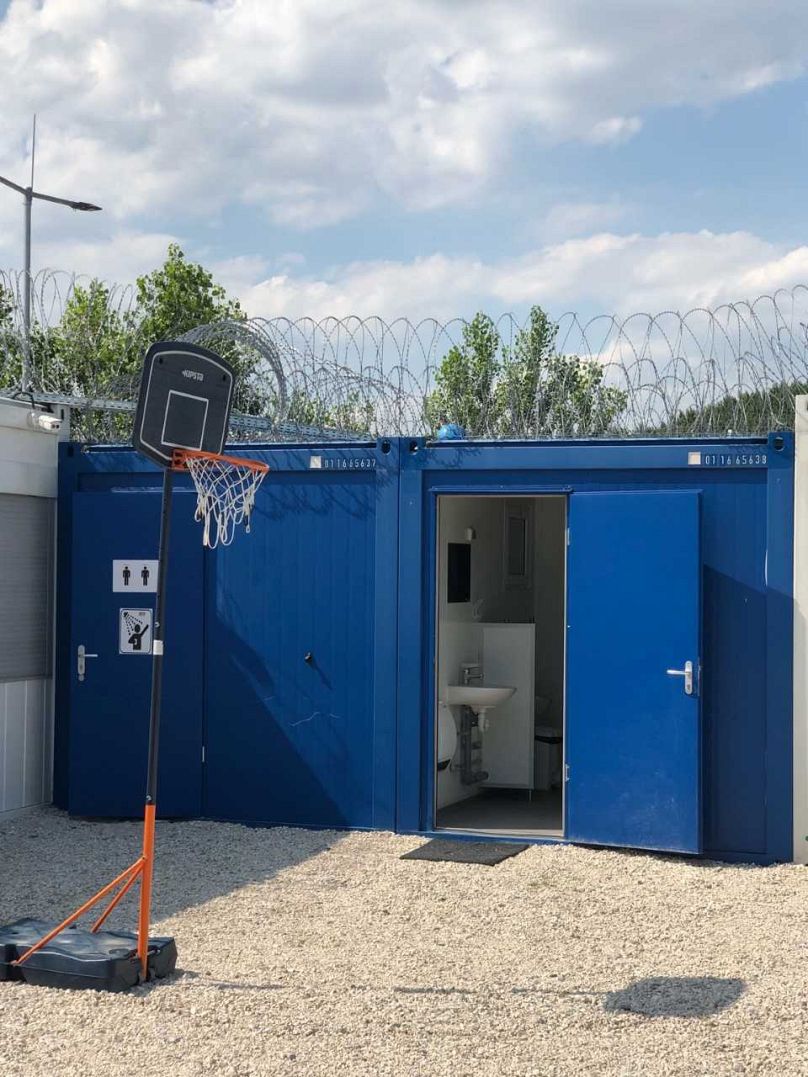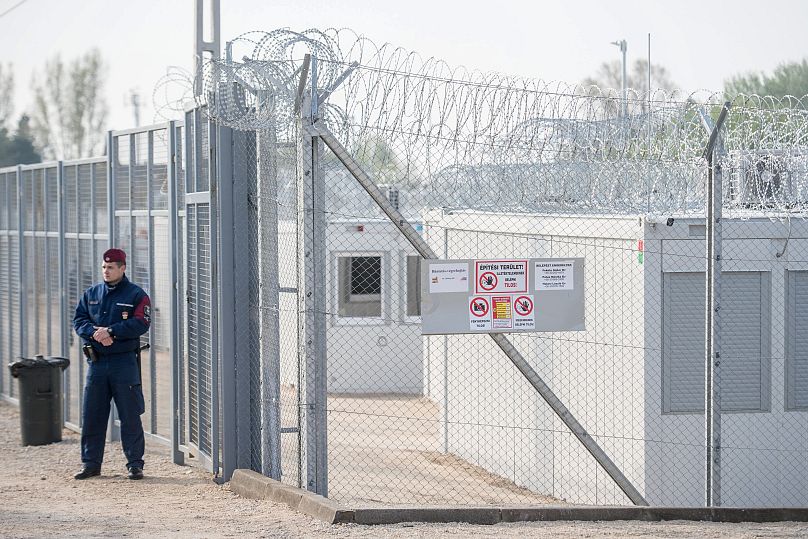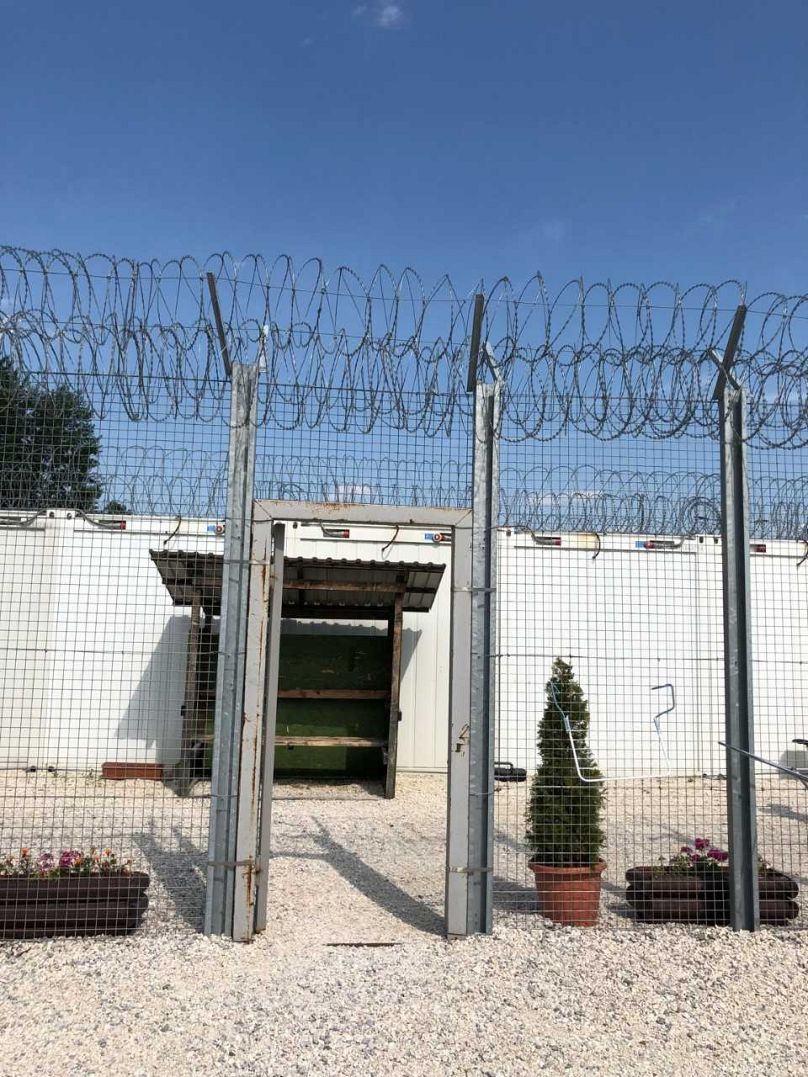Why is Hungary withholding food from migrants in its border zones?
The European Commission announced last Thursday that it decided to send a letter of formal notice to Hungary concerning "the non-provision of food to persons awaiting return who are detained in the Hungarian transit zones at the border with Serbia".
 ADVERTISEMENT
ADVERTISEMENT
 ADVERTISEMENT
ADVERTISEMENT
According to the Hungarian Helsinki Committee, a non-governmental human rights organisation, since August 2018, 27 people were deprived of food in these zones, which was only provided after an interim measure was issued by the European Court of Human Rights (ECtHR) urging authorities to do so.
The United Nation’s special rapporteur, the UN Refugee Agency and the European Commission have all criticised Hungary over this allegation.
The Hungarian government said these people were not detained and could have left the transit zone to get food in Serbia.
What are the transit zones in Hungary?
Responding to the refugee crisis in 2015, Hungary built a fence on its border with Serbia. Two transit zones were established: one at Tompa and another at Röszke. Asylum seekers can only legally enter the country — and by extension the European Union — here.
There are approximately 280 people in these transit zones — most of them are families and over 60% are children, the UN's special rapporteur on the human rights of migrants, Felipe Gonzalez Morales, wrote last week after his eight-day visit to Hungary.
Who is reportedly being deprived of food?
The transit zones have a separate area for people who are going through a removal procedure because their asylum claim has been denied. Adult men held in this sector are sometimes denied food, Morales claimed in his statement.
The way people in transit zones are being treated changed between 2018 and 2019, according to Andras Lederer, information and advocacy officer at the Hungarian Helsinki Committee, which reports cases in the transit zones to the court in Strasbourg and asks for interim measures.
When the organisation first reported this as happening last August, Lederer said food was withheld immediately from people whose asylum applications had been rejected.
This year, food was provided to individuals until much later in their application process, only being withheld once their initial application and appeal against its rejection had been turned down, he said.
They (asylum seekers) had been "expelled from the country’s territory, so they should have already left the country,” Hungary's Interior Ministry told Euronews earlier this year.
It added the Hungarian authorities offered assistance with voluntary departures, but the people concerned refused to cooperate.
Why is this happening?
There are two possible explanations, said Lederer. The first is a legal one, as the decree that regulates what kind of services have to be provided to people on Hungary's National Directorate-General for Aliens Policing list do not clearly require the provision of food in transit zones during the procedure.
He believes that there is a technical explanation too — if food is not provided, people will want to go somewhere where they can buy food but they can only leave the area in the direction of Serbia and if they do, they lose any chance of protection in Hungary, Lederer said.
We are not 'starving' people in transit zones, says Kovacs
Secretary of State Zoltan Kovacs wrote on his blog "About Hungary" in April that the authorities are not starving people.
The "asylum seekers who have requested asylum and whose claims are under review continue to receive food and shelter as they always have," he said, adding: "Hungary is not responsible for those who have not requested asylum, nor for those whose requests have been denied.”
Why would people refuse assistance?
If people are to be expelled, authorities either choose to send them to Serbia, otherwise, they are sent back to their country of origin, said Lederer, adding that if the former is the case, Serbian authorities must accept those concerned.
Officially, these people should be escorted to Serbia with their papers where Serbian police officers will be waiting for them, he added.
Serbia has not accepted migrants back from Hungary since September 2015, he said.
Euronews contacted the Hungarian authorities to ask what assistance they provided in these cases and whether Serbia had accepted any migrants from Hungary over the last couple of years but had not received a response at the time of publication.
What happens when Hungarian authorities escort people to Serbia?
The UN Refugee Agency (UNHCR) appealed to Hungarian authorities to prevent the deportation of two Afghan families on May 6, 2019.
On May 7, they were deported to Serbia in the middle of the night, according to the agency.
Hungarian UNHCR staff informed their colleagues in Serbia about the arrival of the families to ensure there was someone there to meet them, they added.
The Hungarian Immigration Office said in a statement that they left voluntarily after learning about the deportation decree to Afghanistan.
"When the deportation decree (to Afghanistan) was presented, 11 Afghan citizens — after arguing with each other for around 6 hours — they declared in writing that they would voluntarily leave the territory of Hungary for Serbia. It happened without any cooperation of the authorities," it wrote.
The UNHCR called Hungary’s actions "shocking and a flagrant violation of international and EU law".
Are those in transit zones 'detained'?
Hungarian justice minister Judit Varga said two weeks ago that people in the transit zones are not detained, they are free to leave in one direction — Serbia.
However, going back to Serbia would mean an illegal border crossing that could make it harder to apply for asylum in the country.
The European Commission said in infringement proceedings that, in their view, these people’s "compulsory stay in the Hungarian transit zones qualifies as detention under the EU's Return Directive".
Can Serbia be declared 'a safe, third country' for migrants?
Hungarian legislation states an asylum application "cannot be accepted if a safe, third country exists for that applicant, if he or she stayed there, travelled through the country, and would have had the opportunity to seek effective protection in that country," according to Kovacs.
According to the Hungarian Helsinki Committee, Hungary has refused all asylum claims from people who applied after July 1, 2018, on these grounds, except the applications of two Iranian people that were successful.
This part of the legislation is one of the reasons that the European Commission decided to refer Hungary to the Court of Justice last Thursday as part of the ongoing infringement procedure.
What's more, the UNHCR’s guidelines state Serbia is not a safe, third country.
Could the law be changed to provide food in transit zones?
A simple modification of the government’s decree to add "food should be provided” would be enough to provide to food for people in transit zones, said Lederer.
He added, when his organisation heard about the first cases of food being withheld, it requested this change from the government.
Euronews contacted the Interior Ministry to see if any changes were planned but had not received a response at the time of writing.













